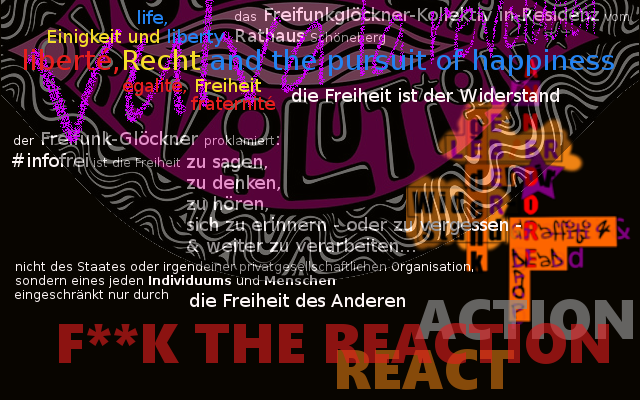Es gibt keinen Textauszug, da dies ein geschützter Beitrag ist.
Kategorie: Uncategorized
Baumfäll... äh -schutzkommission, Uncategorized
Kirschblüte
by Michael Ickes • • 56 Comments

Uncategorized
Abschlussbericht
by Michael Ickes • • 0 Comments
Uncategorized
Rat&Tat Mariendorf 2020
by Michael Ickes • • 1 Comment
Projekt-Rahmen 1.April 2020 – 31.März 2023 Anleiter Anna -> Stefan Kathrin Gesprächsführung Gesprächsrunde Sokratische Gespräche, Dokumentation -> Jens: #infofrei Außendienst-managerin Taghrid, Dokumentation Uwe qualifiziert sich in SCRUM 4 Stationen mit jeweils 5 Teilnehmern: Gesprächsrunde (inkl. Konflikttransformation, Antisemitismus, Amono Foro,..) Außentermine: geplant, getwinnt und dokumentiert. Bürodienst: Empfang, Telefondienst, Büroorganisation, Beratungskompetenz Projektraum: Die Verteidigung der Roten Insel…
Uncategorized
Das politische System
by Michael Ickes • • 0 Comments
Am Anfang war wieder mal irgendwas. Heute eben eine Horde Hominide. Die war arbeitsteilig schon ausdifferenziert zu einem gewissen Grad. Denn selbstverständlich trugen auch damals schon die Frauen die Kinder aus und kümmerten sich insbesondere um den rudimentären Haushalt. Außerdem gab es damals schon die Macher, die Kreativen, die Kooperativen und die Pfleger, wie sie…
öffentlich, Uncategorized, Wort zum Sonntag
Was heisst,
by Michael Ickes • • 0 Comments
Die Grünen seien in der Realität anjekommen? In der Realität, die sie sich selbst geschaffen haben? Nein, Politik folgt keiner esoterischen Lehre der Gesamtheit von Achtsamkeit, Bewußtsein und Wissen. https://www.evernote.com/shard/s414/sh/b9c3a8ca-57c0-4ade-a8b3-40564783d5a1/4b5b9592e2a44e6fc453733000965f0a
Wissen! Bildung! Charakterentwicklung, Bewußtseinsbildung, Vermögen! – Building.
Ich möchte eine Gruppe von Twitterer aufbauen,…
analytisch, kreativ und systemisch wirksam
Uncategorized
den Kapitalismus abstrahieren
by Michael Ickes • • 0 Comments
https://mimaimix.de/icke/wp-content/uploads/bp-attachments/4905/den-Kapitalismus-abstrahieren.png linke-und-kapitalismus-andauerndes-missverstandnis irgendwer meinte Heute mal wieder, dass es darauf ankommt, was zu tun, zu handeln. “Nein, nein, nein,” meinte ich. was tun, handeln, tun wir seit Jahrzehnten. tun, handeln, hat uns in diese Misere und immer tiefer hinein gefahren. wahrnehmen und wirken sind die beiden Fakultäten, nicht handeln, auf die es ankommt.
Uncategorized
PussyTerror TV vom 6. Juni 2019
by Michael Ickes • • 1 Comment
PussyTerror TV vom 6. Juni 2019 /unterhaltung/comedy-satire/pussy-terror-tv/videos/carolin-kebekus-pussyterror-tv-folge-2-video-116.html
Aside
…hat ein neues Buch geschrieben und Deutschland Radio hat’s sehr gut rezensiert:
https://www.deutschlandfunkkultur.de/richard-david-prechts-digitale-vision-irrweg-zum-paradies.1270.de.html?dram:article_id=423896
Mehr noch: RD Precht entwirft eine kurz gedachte Utopie, um das Grundeinkommen zu rechtfertigen, das auf diesem Pfad kommen muss. Die Digitalisierung ist eine folgerichtige Station auf der globalen Gleichschaltung und Entpersonalisierung – bis sich die Privatwirtschaft längst in’s All verabschiedet hat und wir alle an der Matrix hängen ist Widerstand die letzte Freiheit des Menschen.
LG, Mi
under / beyond
de/construction


